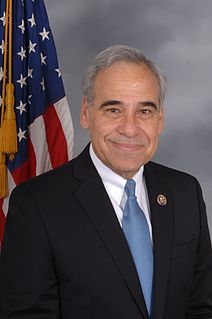A Quote by Steve Hilton
We must not let the panicky Wall Street wheeler-dealers and the Trump-hating establishment state media talk us into a recession. We must keep the focus on the real economy, not the fake economy.
Related Quotes
Our economy will not prosper as long as it is monopolised (by the government). The economy must be rid of monopoly and see competition, it must be freed of insider speculation, be transparent, all people must be aware of the statistics. If we can bring transparency to our economy, we can fight corruption.
Wall Street can be a dangerous place for investors. You have no choice but to do business there, but you must always be on your guard. The standard behavior of Wall Streeters is to pursue maximization of self-interest; the orientation is usually short term. This must be acknowledged, accepted, and dealt with. If you transact business with Wall Street with these caveats in mind, you can prosper. If you depend on Wall Street to help you, investment success may remain elusive.
The impact of QE on generating more lending by Wall Street to Main Street and in generating more employment and increasing overall investment in the economy is quite modest. QE probably limited the initial collapse of the economy in 2008, and likely had a very small positive impact on economic growth, but its broader impact on jobs and growth in the economy seems not very big.
Government intervention in the economy - through taxes, regulation and, most importantly, currency inflation - causes distortions and misallocations of capital that must eventually be unwound. The distortions degrade the general standard of living, and the economy goes into a recession (call that an incomplete cleansing). Or it goes into a depression - wherein the entire sickly structure comes unglued.
Today it's fashionable to talk about the New Economy, or the Information Economy, or the Knowledge Economy. But when I think about the imperatives of this market, I view today's economy as the Value Economy. Adding value has become more than just a sound business principle; it is both the common denominator and the competitive edge.



































